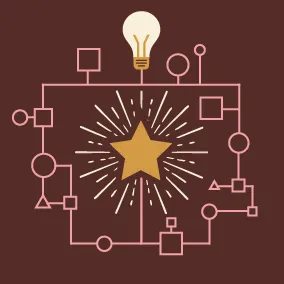Early-Stage Startups & Agency Partnerships — What Makes Them Work?

Liz Quann, Former Senior Digital Strategist
Article Categories:
Posted on
The Viget business development team shares tips on what an early-stage startup should think about before starting with an agency.
The early-stage startup exists in a state of contradiction. While there’s typically lots of excitement and passion around ideas and opportunities, it often goes hand-in-hand with challenges around funding and how to actually build an MVP.
Collaborating with an agency like Viget is a common choice as it offers the immediate stability of an established team without the timeline and risk of staffing up to build an initial product. Viget has worked with many early-stage startups over the years, and we value the chance to collaborate with teams as they define their company and product.
Some recent work had us reflecting on how we’ve approached these client relationships and considering what might be helpful for an early-stage startup to know before partnering with an agency.
Establish ground rules. Start by getting your team and the agency on the same page. This includes logistics like identifying your aligned time zones and preferred tools and workflow details like who makes final decisions and what signoff means. There will be plenty of unanswered questions at the start of the project, but those will seem less scary to tackle with these basic details aligned.
Don’t make it up as you go. Before you engage with an agency, make sure you’re clear internally about what you want to achieve. Ask yourself a few questions: Is the goal to build a functioning MVP? Have a proof of concept for investors? Establish flows for basic user actions? Complete user testing and iterate on a current build? Answers to these questions will help provide a clearer objective and ensure that the work done can make the biggest impact with the available time and budget.
Work quickly and collaboratively. Establish a cadence for check-ins and work shares, so teams have regular opportunities to share progress and flag if something is going off track. Consider a scheduled weekly working session supported by quick check-ins and ad hoc conversations over tools like Slack so your teams can stay in sync without being distracted by meetings.
Stick to quality standards. Working quickly doesn’t mean being sloppy. UX flows and designs should be thought through and technical decisions made with the foresight to the future. While you should be willing to throw out work to date and pivot to something different, if needed, it shouldn’t be because the work isn’t good.
Remember the importance of stakeholder buy-in and feedback. It’s not unusual with early-stage startups that the product-market fit changes or the target audience shifts partway through an engagement. While formal approval cycles are likely overkill, it’s essential to define what stakeholder sign-off looks like. For example, on a recent MVP project, we shifted from bringing in the CEO only for milestone meetings to including them in all working sessions. The timeline was quick, so it was decided that a CEO signoff was needed for all decisions, big and small.
Require documentation. Whether it’s a Figma file with design comps and a component library, a folder with all user research, or a shared GitHub repository set up by your team, it’s important that at the close of the engagement, you have adequate documentation to rely on for future work.
Whether you’re a seasoned vet on your second or third startup or a first-time founder, these tips are worth considering as you build your product. An agency partnership can play a valuable role in a startup’s growth, so taking steps to establish a relationship built on teamwork, transparency, and respect can be so valuable. A very wise Viget once said the following about working with early-stage startups: “Having to change the plan isn’t failure, it’s expected.” While it can be almost impossible to foresee those changes, having the right partner to think collaboratively about solving them can make all the difference.